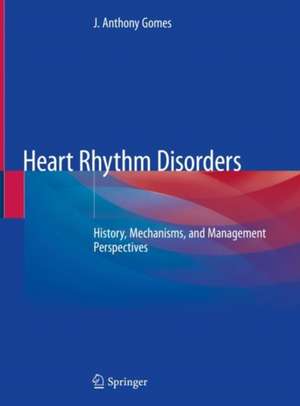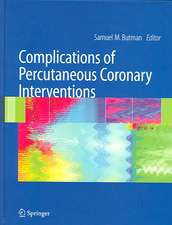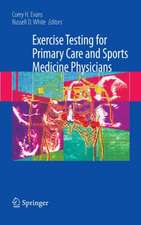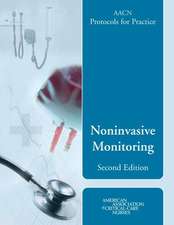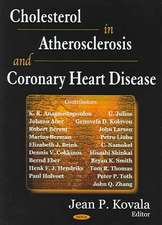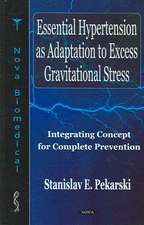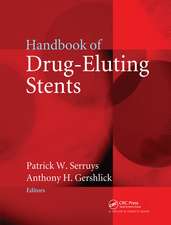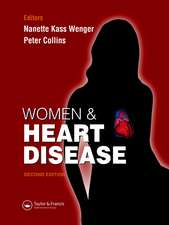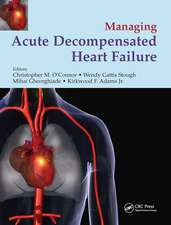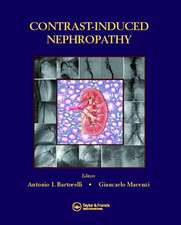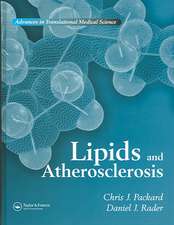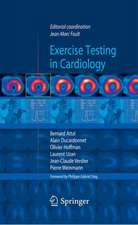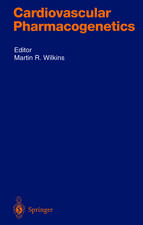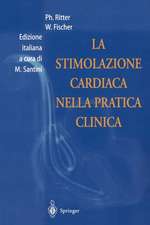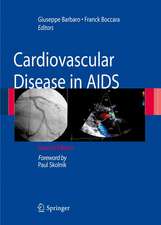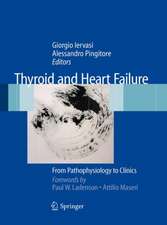Heart Rhythm Disorders: History, Mechanisms, and Management Perspectives
Autor J. Anthony Gomesen Limba Engleză Hardback – iul 2020
This engaging book covers a multitude of topics related to heart rhythm disorders (HRDs) and uniquely familiarizes readers with the development of treatment modalities over the past several decades, including the evolution of anti-arrhythmic drugs, pacemakers, defibrillators, and catheter ablation.
Organized in ten sections, this title serves as both an archival and a contemporary resource for clinicians. The first section describes the discovery of the circulatory system by William Harvey in 1628 and outlines the development and understanding of HRD since the advent of intra-cardiac electrophysiology. Subsequent sections discuss the historical evolution of abnormal heart rhythms, such as supra and ventricular rhythms and sudden cardiac death, their treatment with drugs, surgery, pacemakers, implantable defibrillators and catheter ablation. Section nine offers a fascinating narration of the clinical evolution of overcoming heart attacks and its impact on HRDs. The final section explores potential new frontiers in HRD and the factors that may contribute to the prospective rise of cardiovascular diseases.
A ground-breaking and invaluable addition to the clinical literature, Heart Rhythm Disorders: History, Mechanisms and Management Perspectives details the pervasive nature of cardiovascular diseases in human history, their ramifications, and their projected effects on at-risk demographic populations and human health in general.
Organized in ten sections, this title serves as both an archival and a contemporary resource for clinicians. The first section describes the discovery of the circulatory system by William Harvey in 1628 and outlines the development and understanding of HRD since the advent of intra-cardiac electrophysiology. Subsequent sections discuss the historical evolution of abnormal heart rhythms, such as supra and ventricular rhythms and sudden cardiac death, their treatment with drugs, surgery, pacemakers, implantable defibrillators and catheter ablation. Section nine offers a fascinating narration of the clinical evolution of overcoming heart attacks and its impact on HRDs. The final section explores potential new frontiers in HRD and the factors that may contribute to the prospective rise of cardiovascular diseases.
A ground-breaking and invaluable addition to the clinical literature, Heart Rhythm Disorders: History, Mechanisms and Management Perspectives details the pervasive nature of cardiovascular diseases in human history, their ramifications, and their projected effects on at-risk demographic populations and human health in general.
| Toate formatele și edițiile | Preț | Express |
|---|---|---|
| Paperback (1) | 1065.14 lei 38-44 zile | |
| Springer International Publishing – iul 2021 | 1065.14 lei 38-44 zile | |
| Hardback (1) | 1483.02 lei 38-44 zile | |
| Springer International Publishing – iul 2020 | 1483.02 lei 38-44 zile |
Preț: 1483.02 lei
Preț vechi: 1561.08 lei
-5% Nou
Puncte Express: 2225
Preț estimativ în valută:
283.77€ • 296.28$ • 234.86£
283.77€ • 296.28$ • 234.86£
Carte tipărită la comandă
Livrare economică 01-07 aprilie
Preluare comenzi: 021 569.72.76
Specificații
ISBN-13: 9783030450656
ISBN-10: 3030450651
Pagini: 496
Ilustrații: XXIV, 496 p. 273 illus., 202 illus. in color.
Dimensiuni: 210 x 279 mm
Greutate: 1.74 kg
Ediția:1st ed. 2020
Editura: Springer International Publishing
Colecția Springer
Locul publicării:Cham, Switzerland
ISBN-10: 3030450651
Pagini: 496
Ilustrații: XXIV, 496 p. 273 illus., 202 illus. in color.
Dimensiuni: 210 x 279 mm
Greutate: 1.74 kg
Ediția:1st ed. 2020
Editura: Springer International Publishing
Colecția Springer
Locul publicării:Cham, Switzerland
Cuprins
PREFACE
PART I: The Renaissance Period in Heart Rhythm Disorders
Chapter I: The Discovery of the Circulatory System
Chapter II: The Road to Unearthing the Conducting System of the Heart
Chapter III: Understanding Heart Rhythm Disorders: The Birth of Clinical Cardiac Electrophysiology.
PART II: Supraventricular Tachycardias
Chapter IV: Regular Supraventricular Tachycardia
Chapter V: The WPW Syndrome.
Chapter VI: The Road to Conquering Supraventricular Tachycardia
Chapter VII: Atrial Fibrillation
Chapter VIII: Atrial Flutter
PART III: Abnormal Ventricular Rhythms
Chapter IX: The Ventricular Premature Complex
Chapter X: Sudden Cardiac Death
Chapter XI: Conquering the Substrate of Ventricular Tachycardia
Chapter XII: Anti-Arrhythmic Drugs: Their Fall from Grace
Chapter XIII: Programmed Electrical Stimulation Guided Pharmacotherapy
Chapter XIV: The Implantable Defibrillator
Chapter XV: Ablative Therapy for Ventricular Tachycardia
Chapter XVI: Sudden Death in the Athlete
Chapter XVII: The Channelopathies
Chapter XVIII: Non-Invasive Risk-Stratification for Ventricular Arrhythmias
Chapter XIX: Hypothermia Post-Cardiac Arrest
PART IV: ABNORMAL SLOW RHYTHMS
Chapter XX: The Common faint
Chapter XXI: The Sick Sinus Syndrome
Chapter XXII: Heart Blocks
PART V: TECHNOLOGICAL ADVANCEMENTS IN BRADYCARDIA AND HEART FAILURE MANAGEMENT
Chapter XXIII: The Artificial Pacemaker Chapter XXIV: The Evolution of Resynchronization Therapy
Chapter XXV: New Frontiers in Heart Rhythm Disorders
Chapter XXVI: Waiting for a Heart Transplant
PART VI: THE QUEST TO OVERCOME HEART ATTACKS
Chapter XXVII: The Evolution of Coronary Bypass Surgery
Chapter XXVIII: The Discovery of Clot Dissolution
Chapter XXIX: The Birth of Interventional Cardiology
Recenzii
Notă biografică
J. Anthony Gomes, MD
The Mount Sinai Medical Center
Icahn School of Medicine
Zena and Michael A. Wiener Cardiovascular Institute
1-Guatave L. Levy Place
New York, NY-10029
USA
The Mount Sinai Medical Center
Icahn School of Medicine
Zena and Michael A. Wiener Cardiovascular Institute
1-Guatave L. Levy Place
New York, NY-10029
USA
212-241-7272 / Fax N0: 212-534-2776
E-mail: anthony.gomes@mountsinai.org
E-mail: tong.goa@gmail.com
Textul de pe ultima copertă
This engaging book covers a multitude of topics related to heart rhythm disorders (HRDs) and uniquely familiarizes readers with the development of treatment modalities over the past several decades, including the evolution of anti-arrhythmic drugs, pacemakers, defibrillators, and catheter ablation.
Organized in ten sections, this title serves as both an archival and a contemporary resource for clinicians. The first section describes the discovery of the circulatory system by William Harvey in 1628 and outlines the development and understanding of HRD since the advent of intra-cardiac electrophysiology. Subsequent sections discuss the historical evolution of abnormal heart rhythms, such as supra and ventricular rhythms and sudden cardiac death, their treatment with drugs, surgery, pacemakers, implantable defibrillators and catheter ablation. Section nine offers a fascinating narration of the clinical evolution of overcoming heart attacks and its impact on HRDs. The final section explores potential new frontiers in HRD and the factors that may contribute to the prospective rise of cardiovascular diseases.
A ground-breaking and invaluable addition to the clinical literature, Heart Rhythm Disorders: History, Mechanisms and Management Perspectives details the pervasive nature of cardiovascular diseases in human history, their ramifications, and their projected effects on at-risk demographic populations and human health in general.
A ground-breaking and invaluable addition to the clinical literature, Heart Rhythm Disorders: History, Mechanisms and Management Perspectives details the pervasive nature of cardiovascular diseases in human history, their ramifications, and their projected effects on at-risk demographic populations and human health in general.
Caracteristici
Comprehensive in scope, detailing the full range clinical, historical, and management perspectives on cardiac electrophysiology
Familiarizes readers with the clinician scientists whose discoveries and work propelled the field forward
Discusses the evolution of anti-arrhythmic drugs, pacemakers, defibrillators, and surgical and catheter ablation
Familiarizes readers with the clinician scientists whose discoveries and work propelled the field forward
Discusses the evolution of anti-arrhythmic drugs, pacemakers, defibrillators, and surgical and catheter ablation
